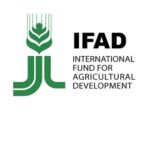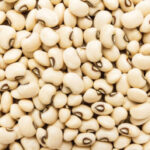Ade Adefeko is the vice president, Corporate and Government Relations, Olam Global Agri. In this interview, he speaks on why prices of rice is still on the high side in the market despite increased local production, among other issues.
For almost 10 years now, you have established a rice farm in Nasarawa State, how is the farm fairing, viz-a-viz Nigeria’s rice sustainability drive?
Olam Agri has the largest rice farm in Nigeria, with an area under cultivation of about 4,400 hectares with an average total paddy output of about 40,000Mt annually from a double cropping system of both wet and dry seasons. Olam is the foremost player in rice farming, milling and production in Nigeria, producing the largest paddy till date.
The cost-of-living crisis has a global toll
As INEC’s proves fidelity to electoral act
But there is still this belief among Nigerians that the presence of your company and those of others have not actually helped to address rice accessibility to the common citizens as the price is still beyond the reach of many. What is your take on this?
Prices of all commodities in Nigerian markets are generally high and not peculiar to rice, for obvious reasons. However, Olam Rice Business does not run a monopoly, but it is a dominant player in the rice value chain.
The price of milled rice is driven mainly by the price of paddy (un-milled rice) in the Nigerian market. Paddy prices have skyrocketed from N180 per milogram to N240 per kg between November 2021 and May 2022 due to market forces.
There are growing complaints against your activities by your host communities, especially regarding the effects of the chemical you use on their farms. How does your company tend to handle this?
Olam Agri has Dr Umaru Ismaila, a registered member of the Weed Scientist Society (WSSN) and someone who had worked with two federal government agencies as a technical staff (National Cereals Research Institute (NCRI), Badeggi, and the National Biotechnology Development Agency (NABDA), Lugbe. He presently serves as the head of the Department of Agronomy in the Olam Rice Farm in Rukubi, Doma Local Government of Nasarawa State, with over 20 years of practical working experience. As such, he has no reason to allow the abuse of any agrochemical on the farm where he has served as chief agronomist in the past five years.
The Olam Rice Farm equally has Professor Celestine U. Aguoru, a renowned Environmental Consultant and lecturer in the University of Agriculture, Makurdi, who was engaged from inception of the farm to oversee all environmental aspects of our operations. The consultant works hand-in-hand with all the relevant federal and state government agencies to ensure that all the company operations are in line with all government guidelines for the safety of the environment and the sustainability of the company’s farming operations.
This is in addition to the employment of an experienced safety manager who works with the consultant to ensure the safety of all our operations for workers and the environment.
It is pertinent to note that the acclaimed crop damage was due to drift (airborne movement of pesticides from an area of application to any unintended site) and not the application of either wrong chemicals or wrong application methods as reported.
The company has two experienced expatriate pilots that operate the three aircraft used for all aerial operations. Drift is basically attributable to weather factors (natural factors) and is a negative phenomenon attributed to large-scale farms worldwide and not peculiar to Nigeria.
The company has averted drift in 2022 by the deployment of drones and manual spraying of herbicide in sensitive areas on the farm. Olam, as we speak, has not received any complaint from any farmer in 2022.
Despite the explanation you have given, there is still looming crisis between your company and the host communities if this problem lingers on; how do you plan to handle this?
The community of Ondore where these complaints came from has had several litigations against the company since 2016 on several issues that are in court, and as such, I cannot speak to them. Again, we are looking at an out-of-court settlement for one of the cases.
It is noteworthy that Olam Agri has seven host communities, namely, Rukubi (main), Ondore, Ijiwo, Obendo, Olegokpa, Achepe, and Bassa, and we have a cordial relationship with all of them.
Food security and sustainability is our mantra at Olam Agri and we hope to continually walk that talk with our host communities.



